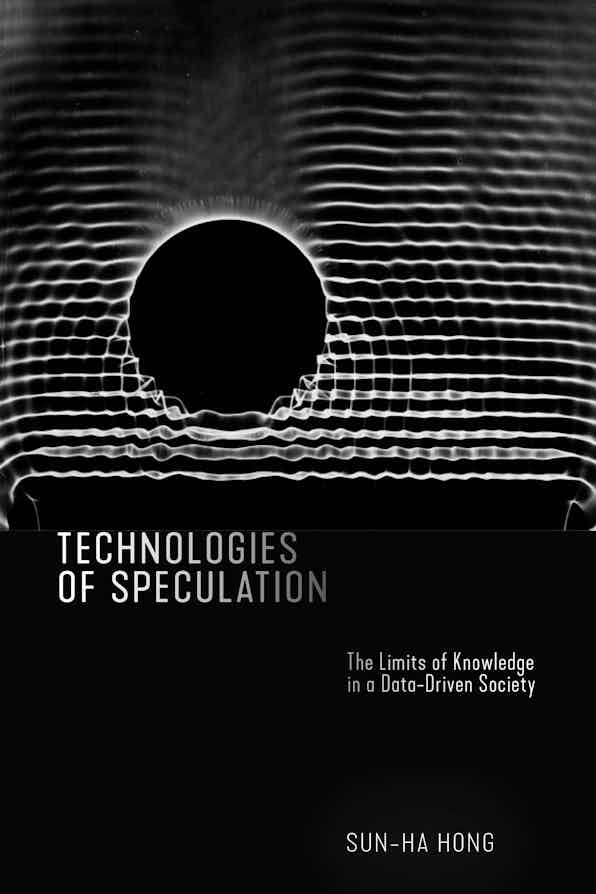I work on practices of uncertainty and speculation in and around data-driven technologies, including the use of big data and machine learning techniques for social prediction and surveillance. I draw on and/or write for communities in critical data studies, media theory, STS, and history of technology. I am currently Assistant Professor of Communication at Simon Fraser University, Canada, and was previously a Mellon Postdoctoral Fellow at MIT.
My first book, Technologies of Speculation, asks how the irreducible uncertainties around data get suppressed, obfuscated, and rationalised, focusing on two scenes of contemporary American fixation around data and numbers: counter-terrorist state surveillance, and the rise of self-tracking technologies. I suggest that these practices reprise a longer pattern of ‘honeymoon objectivity’: the recurring fantasy that with this new technology, we will finally be able to turn human bodies and their many uncertainties into stable, impersonal fact.
I am currently working on a second book project. Predictions Without Futures weaves together technological predictions about futures, and predictions about future technologies, into a common story about the repetition and the stagnation of the social. My recent pieces introduce the book’s arguments around the ritualised temporality of technological futures (History & Theory, 2022), and how predictive technologies systematically extract discretionary power from ordinary subjects (Big Data & Society, 2023) – thus deepening the ‘speculative inequality’ between those who predict and those who are predicted. I recently previewed some of these themes in a talk for the Automated Decision Making + Society centre in Australia (below).
I also write shorter pieces on topics like why transparency won’t save us from digital governance problems, why technological futures keep repeating the same old robot maids, and Sam Altman’s global AI tour as an episode in patterns of ‘catch-up innovation’ beyond the West.
Technologies of Speculation:
The limits of knowledge in a data-driven society
New York University Press, 2020
Available @ NYU Press | Amazon | Indiebound
You can also read the first two chapters here.
Short pieces about the book:
Book summary @ NYU Press Blog
Discussion with Trevor Paglen @ Art in America |
Interview with Emily Watlington @ LA Review of Books
“Why Transparency Won’t Save Us” @ CIGI
“Control Creep” @ CIGI
“Same Old” @ Real Life
What counts as knowledge in the age of big data and smart machines? In its pursuit of better knowledge, technology is reshaping what counts as knowledge in its own image – and demanding that the rest of us catch up to new machinic standards for what counts as suspicious, informed, employable. In the process, datafication often generates speculation as much as it does information. The push for algorithmic certainty sets loose an expansive array of incomplete archives, speculative judgments and simulated futures where technology meets enduring social and political problems.
Technologies of Speculation traces this technological manufacturing of speculation as knowledge. It shows how unprovable predictions, uncertain data and black-boxed systems are upgraded into the status of fact – with lasting consequences for criminal justice, public opinion, employability, and more. It tells the story of vast dragnet systems constructed to predict the next terrorist, and how familiar forms of prejudice seep into the data by the back door. In software placeholders like ‘Mohammed Badguy’, the fantasy of pure data collides with the old spectre of national purity. It tells the story of smart machines for ubiquitous and automated self-tracking, manufacturing knowledge that paradoxically lies beyond the human senses. Such data is increasingly being taken up by employers, insurers and courts of law, creating imperfect proxies through which my truth can be overruled.
The book situates ongoing controversies over AI and algorithms within a broader societal faith in objective truth and technological progress. It argues that even as datafication leverages this faith to establish its dominance, it is dismantling the longstanding link between knowledge and human reason, rational publics and free individuals. Technologies of Speculation thus emphasises the basic ethical problem underlying contemporary debates over privacy, surveillance and algorithmic bias: who, or what, has the right to the truth of who I am and what is good for me? If data promises objective knowledge, then we must ask in return: knowledge by and for whom, enabling what forms of life for the human subject?
Praise for Technologies of Speculation:
“Juxtaposing methods of state- and self-surveillance—from government terrorism forensics to personal biohacking projects—Sun-ha Hong illuminates the common epistemological dynamics of contemporary approaches to uncertainty and truth. Eschewing modern technological fantasies, Technologies of Speculation offers readers a prescient framework to make sense of the data-driven logics that seek to know, and shape, our lifeworlds.”
~Natasha Dow Schüll, author of Addiction By Design: Machine Gambling in Las Vegas
“Drawing luminous connections between mass surveillance and self-tracking, Technologies of Speculation incisively explores the interplay between the new capacities of data science and the often fanciful but significant castings of the power and objectivity that these sciences promise. Hong’s readings of the Snowden documents are among the smartest, freshest, and most incisive to date. He challenges our understanding of the digital terrain we traverse and that follows us forward.”
~Matthew L Jones, author of Reckoning with Matter: Calculating Machines, Innovation, and Thinking about Thinking from Pascal to Babbage
“There was a bounty of new critical thought about technology and society from the academic publishing press this year. I’ll start with what I consider to be the most alarmingly overlooked: Hong’s Technologies of Speculation from NYU Press. Hong argues that surveillance technologies, from the NSA apparatus exposed by Eric Snowden to the Fitbits we slap on our wrists, are ultimately highly subjective systems — data collection is an incredibly inexact and often highly arbitrary process. As such, it opens up spaces for corporations and users to impart their own mythologies and speculations.”
~Brian Merchant, OneZero’s The Best Tech Books of 2020

